
Support truly
independent journalism
Our mission is to deliver unbiased, fact-based reporting that holds power to account and exposes the truth.
Whether $5 or $50, every contribution counts.
Support us to deliver journalism without an agenda.

Louise Thomas
Editor
Go to Willcox Playa Wildlife Area, they said. You’ll see plenty of sandhill cranes. Sandhill cranes? We get those in Florida, we replied. Ah, not like this, they insisted. And they were right.
The region in southeast Arizona is home to the annual migration of sandhill cranes, and the sight of thousands of these majestic birds arriving at sunset over the Playa’s marshland was akin to being in the middle of a David Attenborough documentary.
Like the massed formations of World War II bombers – but distinctly less hostile – the cranes floated in from the setting sun on a perfect Arizona evening to join thousands of their brethren seeking winter warmth.
We’d seen some amazing birdlife on the first six months of our epic ‘Year On The Road’ RV adventure, but nothing to match the awe-inspiring splendour of this extraordinary vista of migratory avians, a symphony of winged elegance with an intense burnt orange backdrop.
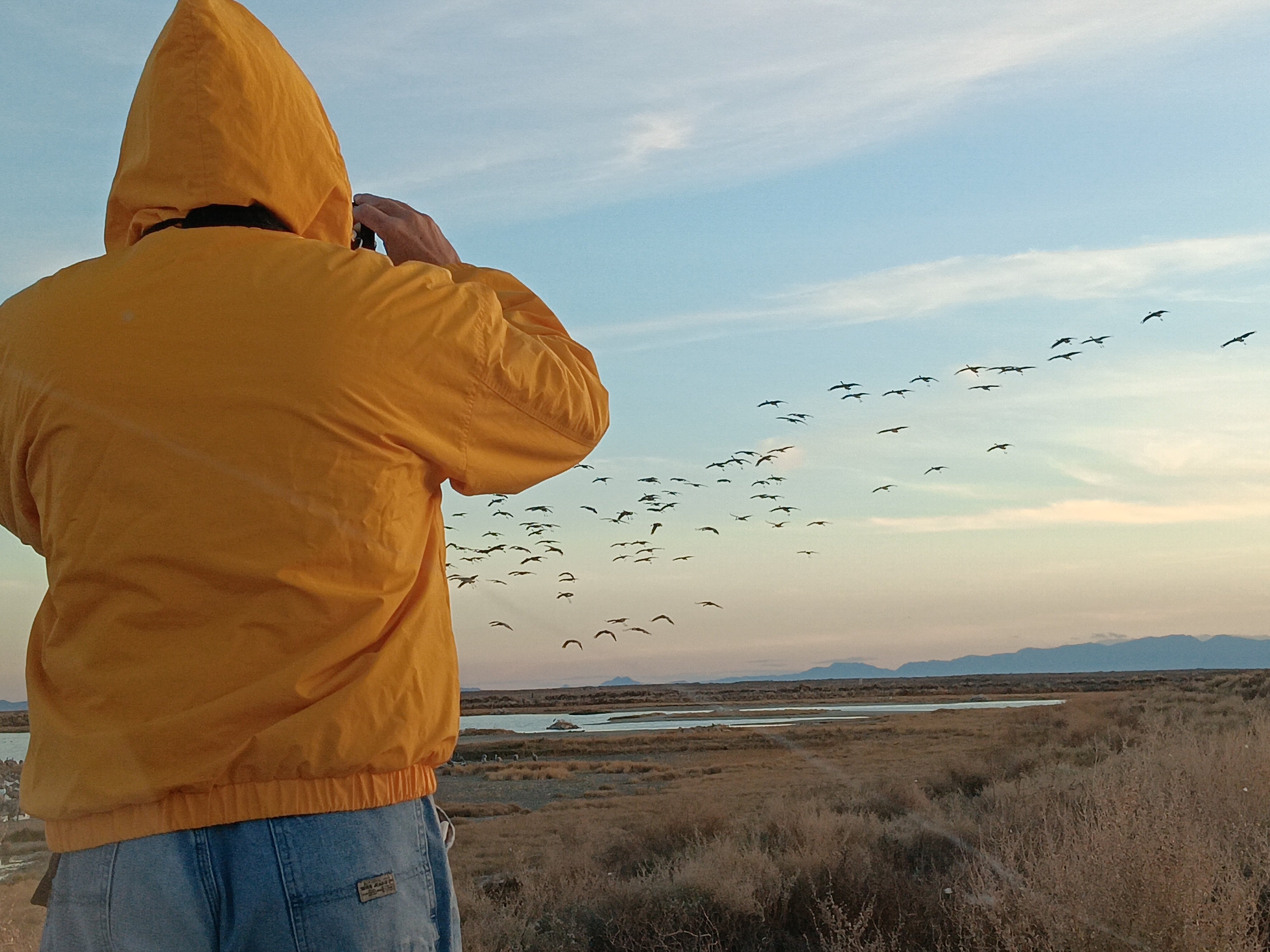
Read more on USA travel:
- How to do the great American road trip: Arizona
- The best US National Parks to visit
- How you can enjoy Las Vegas without spending a dollar in a casino
Willcox was our final stop in Arizona, and it also produced one of our most cosy campgrounds, the Willcox/Cochise KOA Holiday campground, complete with porch swing and outdoor grill, as well as a swimming pool and country restaurant that delivered tasty pizza and pasta direct to our RV.
We arrived via a month’s tour of the southern half of the state, with lengthy stops in Mesa and Tucson thanks to the free one-year Thousand Trails membership that came with the purchase of our second-hand Winnebago Sightseer.
Thousand Trails are the Center Parcs of RVing, an all-singing, all-dancing campground option with everything from fitness centres to craft classes. Ours also offered pickleball, shuffleboard and proper dog parks for our ageing labrador. More importantly, Mesa and Tucson were ideal bases from which to explore north to Sedona and south east to Tombstone and the desert spectacles of Saguaro National Park and Chiricahua National Monument.
We decided on an overnight trip by car to Sedona and were richly rewarded for taking our time driving through rugged Oak Creek Canyon, where the winding road gradually revealed its geological grandeurs before arriving in the heart of the Verde Valley and a jaw-dropping panorama.
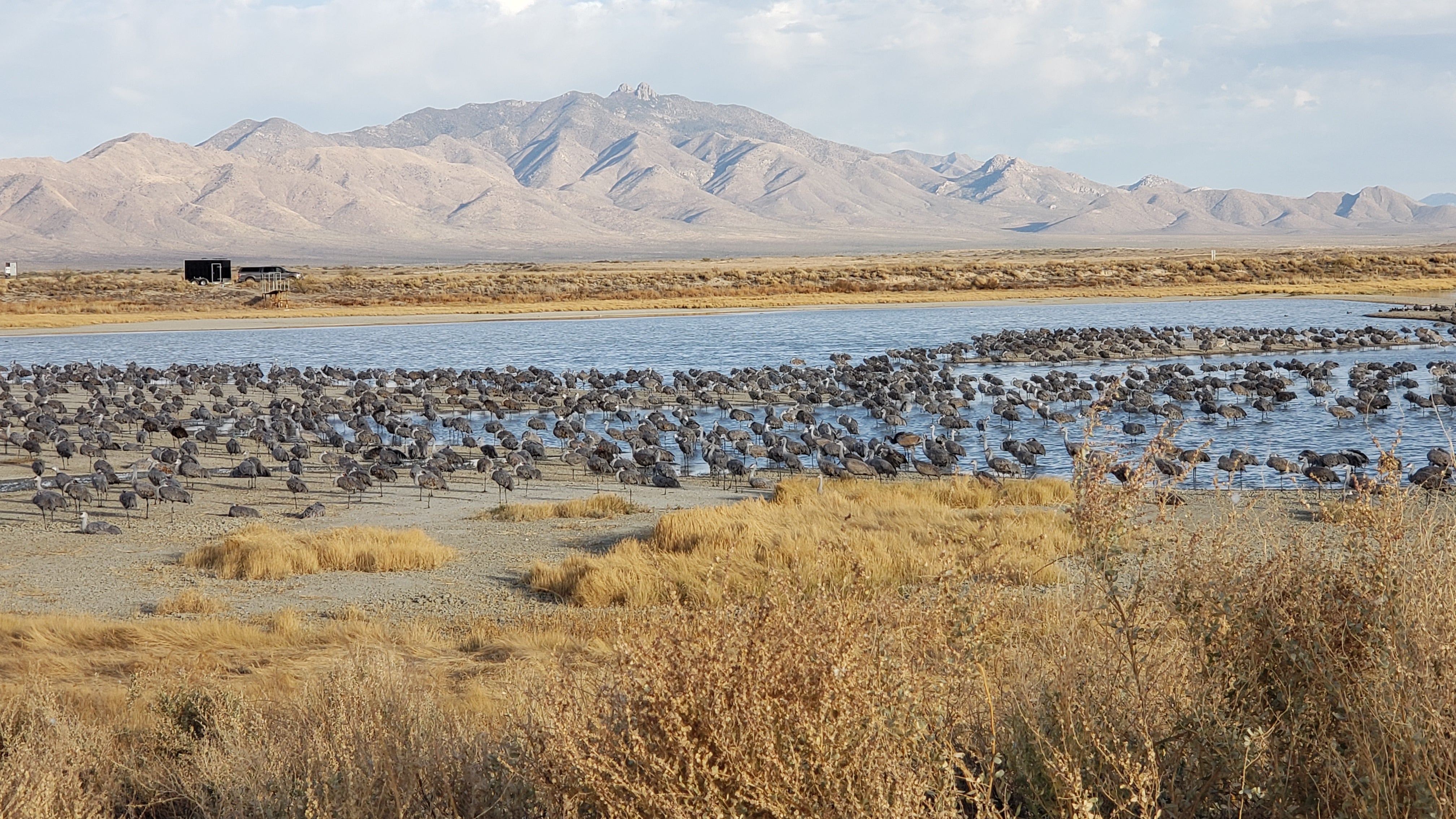
Sedona sits amid a range of stunning orange-hued sandstone formations that have been steadily eroded by the Verde River and Oak Creek to provide a mesmerising backdrop of mountain magnificence.
We also enjoyed the ideal boutique hideaway of El Portal, a rustic luxury hotel just off pretty Main Street and adjacent to vibrant Tlaquepaque Arts and Crafts Village. It was a Frank Lloyd Wright-esque treasure of elegance and comfort where, after a day of exploring the sights and tastes of the Valley, we were able to swap stories with other guests around the courtyard’s open fire under a vivid canopy of stars.
Sedona’s food was almost as good as the sights. Breakfast at Secret Garden Café offered tasteful burritos and quiches; lunch at the Old Town Café in neighboring Cottonwood added a tempting range of wholegrain sandwiches; and Creekside American Bistro served up chic cocktails and delectable small-plate appetisers for dinner.
Back in Mesa, we branched out to discover the ancient desert farming community of the Casa Grande Ruins and the wild horses of the Lower Salt River. Cruising along the Apache Trail Scenic Byway took us through the Superstition Mountains to historic cowboy outpost Tortilla Flat, where the Superstition Saloon offered saddles for bar stools and Prickly Pear ice cream was the local treat. On returning, we called into Goldfield Ghost Town for more flavours of the Old West, resurrected as a genuine tourist attraction in the 1980s to include mine tours and daily gunfights.
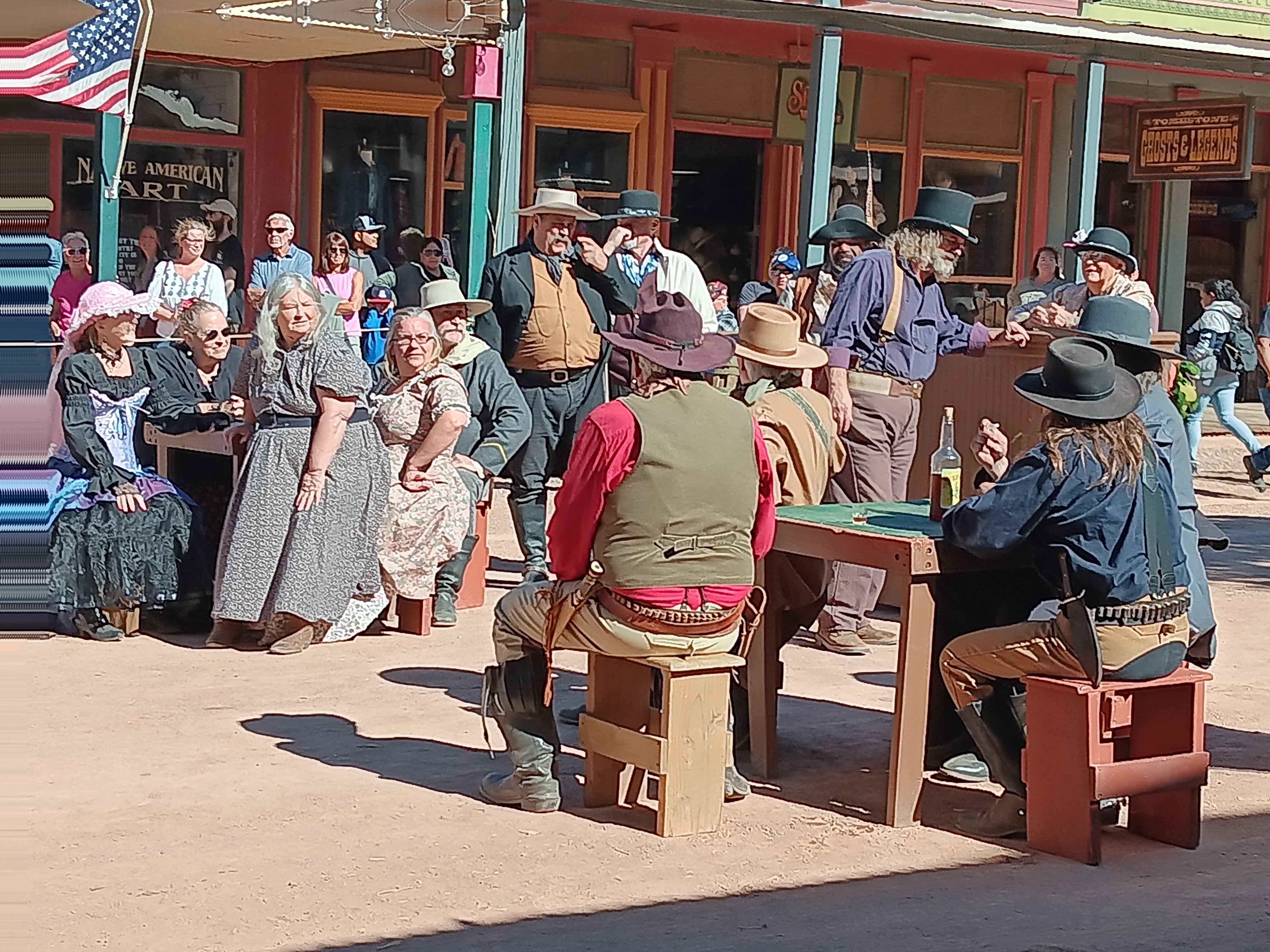
Tucson took the cowboy theme and ran with it – all the way to Tombstone, where “the Town Too Tough to Die” remains a timewarp testament to the 1880s days of Wyatt Earp and Doc Holliday. We took the Historical Trolley Tour from the Goodenough Silver Mine and learned some of the real history, as opposed to the Hollywood version, which paints Wyatt as the central figure when it was, in fact, older brother Virgil who led the way.
That celluloid misconception was also outlined at Old Tucson, a film ‘theme park’ dating back to 1939 when Hollywood scene-setters built a multi-use location for generations of movie-makers. Here, the likes of John Wayne, James Stewart and Clint Eastwood strutted their cowboy credentials, and daily tours now lead visitors on a riveting journey of Western folklore. The 18th-century New Spain mission of St Xavier del Bac then added the region’s historic Spanish background.
But, as fascinating as the human history was, it paled by comparison with the natural side. Saguaro National Park – in two segments either side of Tucson – introduced us to the mighty namesake cactus, while Chiricahua National Monument took us 27 million years into the state’s geological past,when a notable upheaval created enough ash to form deep layers of rhyolite that have been eroded into bizarre columns and shapes over a wide area now known as the ‘Wonderland of Rocks’.
Another evening, we snagged a reservation at eclectic Spencer’s Observatory just outside Saguaro National Park, and had our minds boggled as the resident astronomer dialed in close-up views of Saturn, Jupiter and the moon in astonishing clarity from this Dark Sky region.
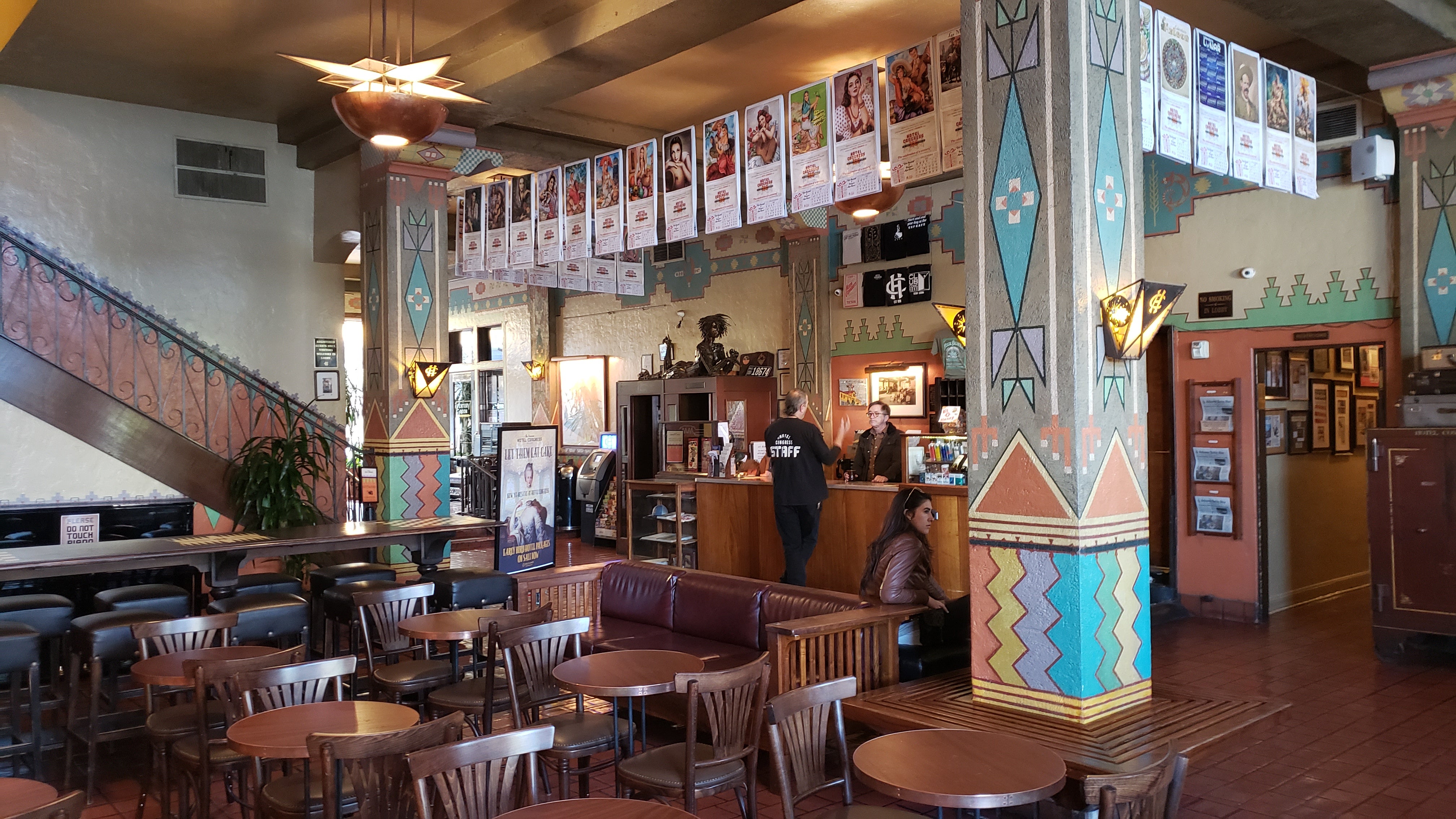
Then there was the food. While we hadn’t been short of memorable meals in the first half of our trip, we hadn’t hit haute cuisine territory, either. That changed in Arizona. Sedona provided an early taster but Mesa hit the heights with gems like Waldo’s BBQ and the superb Queen Creek Olive Mill, a gorgeous exercise in agritourism as well as outrageously delicious sandwiches and salads all based on the olive oil theme. The urban farm community Agritopia offered upscale dining at Joe’s Farm Grill while nearby Schnepf Farms took local agritourism further with its signature Pumpkin and Chili Festival, a homespun event of enormous charm.
Tucson added a rich layer of Mexican influence and we were bowled over by an array of south-of-the-border delights that included the delightfully quirky Cup Cafe for breakfast; Seis Kitchen for lunch (with ultra-fresh tacos and burritos, plus a dreamy version of the cinnamon-flavoured rice drink, Horchata); and dinner at Coronet, a dazzling mix of restaurant, bar and coffee shop; as well as the pavement café style of Wildflower, dealing in New American cuisine and exquisite cocktails.
Finally, we had that amazing sandhill crane extravaganza to seal our Arizonan adventure. Las Cruces in New Mexico wasn’t somewhere we knew in advance, but its KOA Journey resort looked ideal for visiting key sites throughout the south of the state.
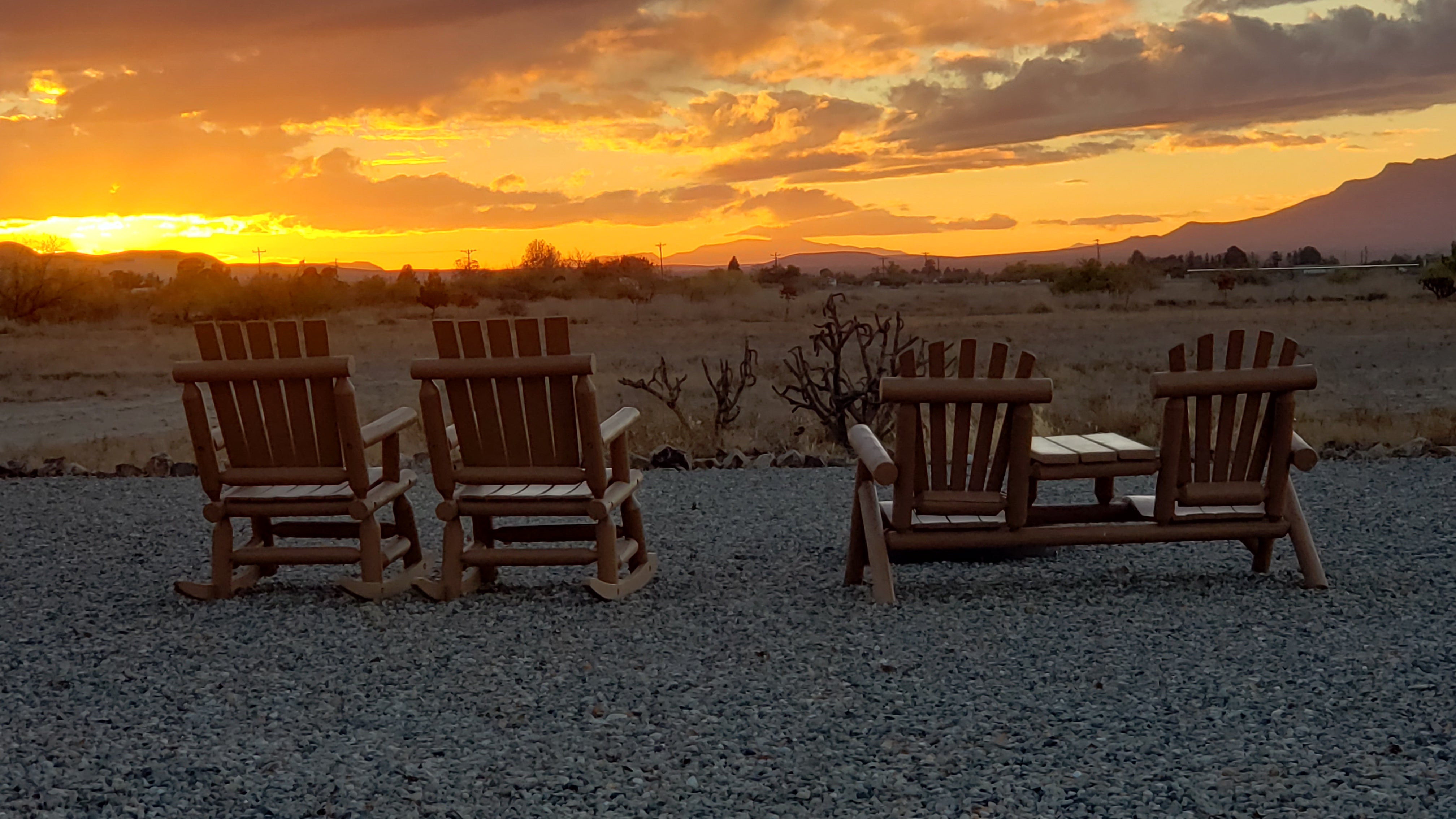
Our first discovery was the town of Mesilla, right outside Las Cruces. Here, in April 1881, William Bonney – better known as Billy the Kid – was sentenced to death at the county courthouse. But as legend would have it, the Kid escaped from jail, only to be gunned down by Sheriff Pat Garrett three months later at the age of 21.
The old courthouse is now home to the Billy the Kid Gift Shop – a bizarre juxtaposition of historic and modern – but Mesilla has aged well, becoming an eye-catching repository of shops, cafes and central square, complete with bandstand.
Mesilla’s adobe architecture would become an ever-present companion on our New Mexico travels, but next were two places of enormous contrast: White Sands National Park and historic Sante Fe. We were heading for a unique array of natural and manmade fascinations, and the weather wasn’t about to stop us.
How to do it
With more than 500 locations throughout America, KOA campgrounds can be found in almost every state. For Arizona’s prime attractions and other places to stay, see visitarizona.com.
Best value for visiting the National Parks is the America the Beautiful pass. For just $80 (£61) a year, it provides access to all National Parks and many others run by federal agencies. For US residents over 61, it is only $20 (£15.25) – a massive saving on park fees.
Read more: USA travel guide – everything you need to know before you go







